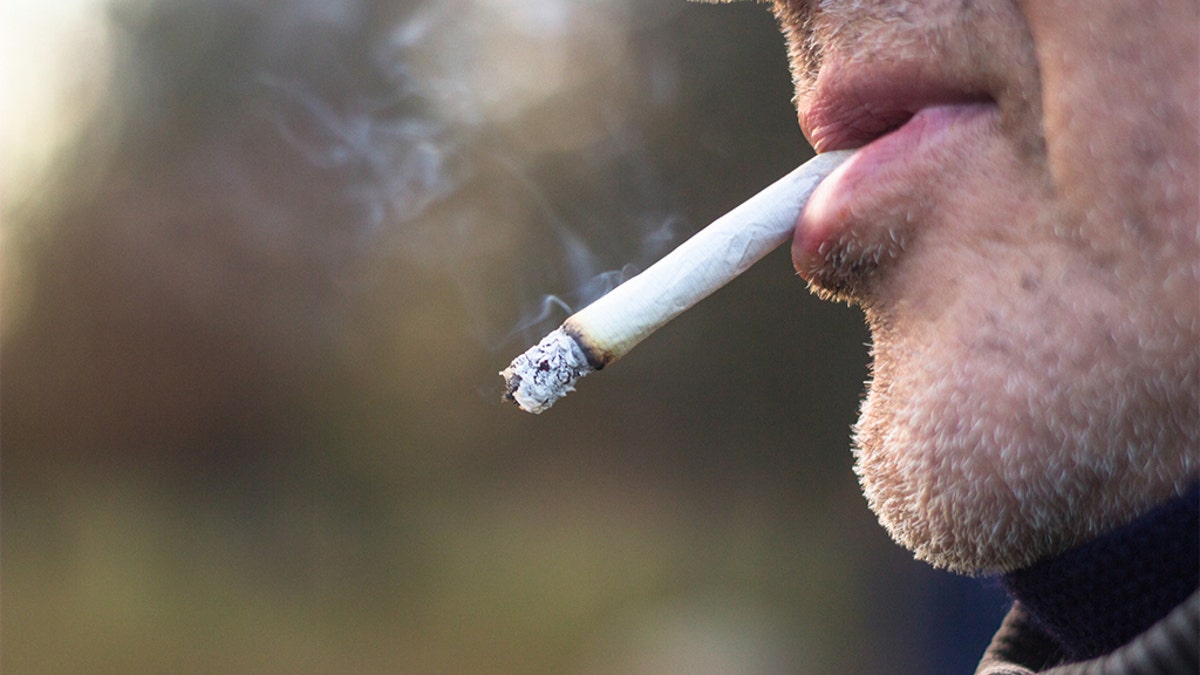Fox News Flash top headlines for October 14
Fox News Flash top headlines are here. Check out what's clicking on Foxnews.com.
Americans drank and smoked more during the course of the COVID-19 pandemic, researchers say.
In a new study published in the peer-reviewed journal Nutrients, a national team led by the University of California, Los Angeles found that U.S. residents also spent less time exercising and more time in front of a screen.
"We found that regulations to restrict non-essential activities and stay-at-home orders during the pandemic have had profoundly negative impacts on multiple lifestyle behaviors in American adults," Dr. Liwei Chen, UCLA Fielding School of Public Health associate professor of epidemiology and lead author of the study, said in a UCLA release. "As bad as these changes have been for all Americans, they disproportionately impact racial and ethnic minorities in the U.S., who already bear a higher disease burden from COVID-19."
DEPRESSION, ANXIETY FELL AS US COVID-19 RESTRICTIONS ENDED IN 2021: CDC DATA
In order to reach these conclusions, the authors conducted a survey called the Health, Ethnicity, and Pandemic (HEAP) Study in October 2020 among adults.
The HEAP Study was funded by the Center for Reducing Health Disparities at the University of Nebraska Medical Center, The Chinese Economists Society and the Calvin J. Li Memorial Foundation. The study was designed by investigators from several universities and carried out by the National Opinion Research Center (NORC) at the University of Chicago.
Participants of the study were selected using 48 sampling criteria, including age, race, ethnicity, education and gender.
Those selected – more than 2,700 – were asked to report five lifestyle behaviors before and during the pandemic, including exercise time, screen time, fast-food meal consumption, alcohol drinking and cigarette smoking.

A man smokes a cigarette outdoors (iStock)
The relation of social and demographic factors with each lifestyle change was estimated using "weighted multivariable logistic regression models."
Across those surveyed, the time spent on exercise decreased by more than 31%, screen time increased by more than 60%, alcohol consumption increased by more than 23% and smoking increased by 9%.
That said, the average consumption of fast food dropped from 1.41 times per week to 0.96 times per week during the pandemic.
"The observed decrease in fast food consumption is likely due to the stay-at-home order and the closure of fast-food restaurants during the pandemic," Chen said. "Although the majority of our study’s participants, about 77%, reduced or did not see a change in their fast-food meal consumption, there were still almost 23% that increased how much fast food they ate in the same period."
PEOPLE ARE TURNING TO HORSE THERAPY TO IMPROVE MENTAL HEALTH DURING THE PANDEMIC
The authors also identified subgroups that were more vulnerable to adverse influences from the pandemic,
Compared to Non-Hispanic Whites, Non-Hispanic Blacks and Hispanics were more likely to have undesired changes in multiple lifestyle behaviors, including exercise, screen time, fast food intake and alcohol consumption.
American Indians and those in the "other" racial category were more likely to decrease their exercise time and increase consumption of fast-food meals and Asian Americans were less likely to increase alcohol drinking and cigarette smoking.
The findings, the authors said, were consistent with those from previous studies that documented the disproportionate exposure to and suffering from the COVID-19 pandemic by these groups.
In addition, younger-aged adults were also more likely to have undesired changes in exercise time, consumption of fast-food meals, alcohol drinking and cigarette smoking, compared with old adults.
Women had higher odds to increase screen time during the pandemic and married individuals were not more likely to decrease exercise time than those who were married or lived with partners.
Lower odds of smoking during the pandemic were associated with higher household income and individuals with higher education levels had higher odds of having more undesired lifestyle changes including less exercise time, more screen time and more alcohol drinking.
Notably, the study has several limitations including that survey data was only collected at the one-time point during the pandemic and that limited information was collected for each lifestyle behavior due to the concerns regarding participant time and burden.
For dietary intake, the researchers solely focused on the consumption of fast-food meals.
CLICK HERE TO GET THE FOX NEWS APP
Nevertheless, the authors say that mitigating the impacts of COVID-19 requires effective interventions.
"We found a marked increase in sedentary behaviors, alcohol consumption, and cigarette smoking, and a decline in exercise," Dr. Jian Li, Fielding School professor of environmental health sciences and a co-author, said in the release. "Whether these persisted as the pandemic continued, and whether individual’s quality of life and health well-being are subsequently affected, has to be studied, but it is clear that resources and support that can help people maintain healthy lifestyles, during the pandemic and afterwards, are urgently needed."










































